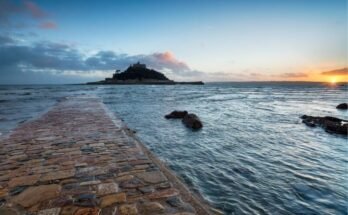*Abstract from James A. Michener’s Centennial*
It was the spring of 1851
In the land of the Red Indians
The original inhabitants of America
From the trails of Oregon to the Missouri.
The entire tribe gathered for some peace talk
With the white men aiming to sign some treaties
Having killed the Natives and hunted all their beavers
With starvation as a tool in their own barren land.
They got them drunk and took their wives
They shot their chiefs and took their land
As they searched for earthen treasures in that arid land
They forcefully took possession wherever they could.
So it was in the spring of ‘51
The Indians got together for some peace talks
Having acquired the disease, the white men brought
That killed a lot of them leaving the rest to mourn.
In all previous history of the American Indians
There had been nothing like the gathering
At Forth Laramie that summer
And in the decades to come none would ever match.

From the North East came the Assiniboine
Skin men attuned to their horses
Like the centaurs they rode
Man and horse as one.
Bred in remote canyons
Far from the white man’s reach
They wore no headdresses but moved in subtle grace
These dignified men of solemn character.
From up the Platte came the Cheyenne
Incomparably the noblest in appearance
Graceful and the tallest among the tribes
Arrogant and self-assured, so they were.
Sitting on horses, right hands on hips
They looked like graven images
With the beauty of their head dresses
And the finesse of their garments, impressing the rest.
Their leading chiefs were Broken Thumb
Bear’s Feather and Rides-On-Clouds
Little Chief, Lean Bear
And White Antelope.
Their war bonnets made of the finest eagle feathers
Set in a stout gold colored webbing
Decorated with quills
Forming a compelling phalanx as the sun struck them.
From the north came the strangers
The Mand and the Hidatsa
And the Arikara
Known as the shortest in all the plains.
The strange contingent came from the west
The dark-skinned Shoshone
Moving with caution
Each with loaded rifles across their arms.
The philosophers and artists of great determination
The listeners when others spoke
Willing to risk their future and that of their children
They were less arrogant than the Cheyenne
From the west with the early sun on their faces
Came a contingent of three-thousand Crow
Who were always considered ideal Indians
With skins much lighter than all the other tribes.
They were not a tribe to be trifled with
Men and women gifted with an inner dignity
Never subdued but less imposing than the Sioux
Eagle Head, Lost Eagle, White Crow, Cut Nose and Little Owl.
A mighty nation prowling the northern prairies
Very moody people of unusual intelligence
They held tenaciously to valleys
That had long been theirs.

Their four chiefs wore some costumes novel to the other tribes
Nine strings of cowries around their necks
Long strands of elk bones falling from their temples
From their breastplates dangled scores of ermine tails.
With their conspicuous hairs upright
In huge pompadours
That was kept in place by gum from spruce trees
They looked so attractive in their regalia.
At the signal of the chief Crow
Two hundred near nude horse riders
At the surprise of on-lookers
Fired a salute from an old flintlock.
With the sun exploding in their faces
They broke into the song of their nation
With their voices filling the morning air
They sang in lieu of their day’s mission.

In the rear of each tribe’s warriors
Guarding the children and their tipi
Came the tall female most dignified
Supporting their chiefs in decisions reached.
Lost Eagle stood and spoke for the rest
We must have buffalo
For without food we’ll perish
We must be permitted to ride the open prairies.
‘Without our freedom our spirits will perish
We are all ready to assemble
With the white man as our brother
Whatever we’ll do we’ll have to do’.
‘We must have peace
We’ve fought so much for so long
We pledge to lay our arms down
We shall fight no more from now onwards
We will fight no more forever!!!’
![]()






